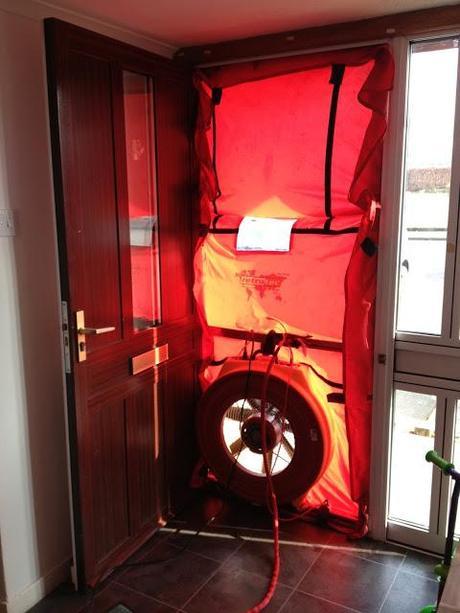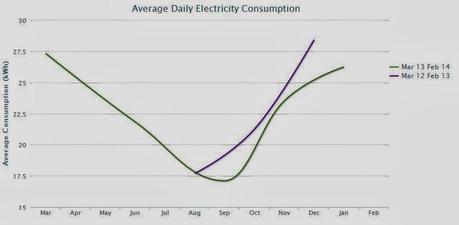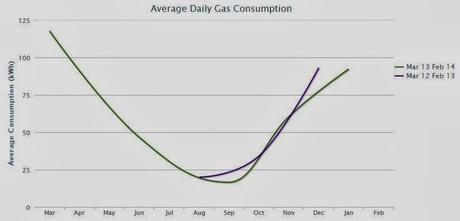The team from LEAP - our local energy action plan organisation - came to see what could be done to make things greener (and cheaper) without melting my brain or causing me lots of hassle.

I used to pay £192 a month for gas and electricity for our slightly-larger-than-normal-but-not-huge semi-detached house. That's £2304 a year. Then I thought that we were pretty careful with our energy use - energy-saving bulbs, insulation in the loft and cardis on during the day.
However, I quickly learned that there was still work to do. There were drafts to be eradicated (or at least blocked a bit) as well as behavior patterns to think about.
Of course, some things were non-negotiable (such as the tumble dryer), but at least they were decisions from an informed position now.
It's amazing how much difference just shutting your curtains at night and closing the door on unused rooms can make - both to cosiness and cost. And understanding that an oil-filled electric radiator at 450 watts rather than a fan heater at 2000 will eat far less electricity.
LEAP came back and tested my house to see how well we were doing - the answer was much better but still room for some improvements.
Then last month my joint fuel account with ScottishPower was so far in credit that I could cut my monthly payments to £134 - a reduction of nearly 30 per cent and a saving of £696 a year.
This was the most concrete proof that my small energy-saving measures were having effect.
 None of the steps I took have been onerous - common sense in most cases. Just keeping the cold out and using less power wherever possible.
None of the steps I took have been onerous - common sense in most cases. Just keeping the cold out and using less power wherever possible.
The only down-side I've noticed has been a little more condensation on the inside of some of the windows (especially the aluminum frames), which is to be expected and, in fact, just proof that the house is more wind-proof.
But our eco to-do list isn't finished. The next big task is to replace all of the light bulbs with LEDs as soon as possible. They are quite pricey (around £10 each), but experts say that can be recouped within 18 months easily. They also last for ages and get bright instantly so are almost worth it on that basis alone.
Mostly, though, it's an increase in awareness and an on-going process. For example, when buying new appliances I'll take account of their energy rating whereas previously it didn't mean anything to me. Hopefully, there's more money yet to be saved...
